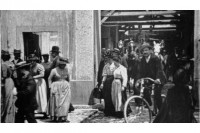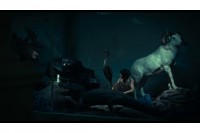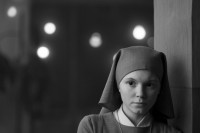WARSAW: Polish public broadcaster TVP has received state funding to coordinate a new project aimed at making public media available to everyone.
WARSAW: Poland has digitalized 99 local and art-house cinemas in 88 cities through the Polish Digital Cinemas Network programme, with more plans to convert more in 2014.
WARSAW: Poland’s Alvernia Studios is teaming up with Holland’s Fu Works Productions on a financing incentive to bring international projects to Alvernia Studios.
KATOWICE: FNE spoke with Cannes Festival director Thierry Fremaux during his first visit to Poland when he attended the Regiofun Festival. During his stay he met with the festival audience and narrated a special screening of Lumiere!, a collection of digitally remastered films by the Lumiere brothers.
KATOWICE: The Romanian coproduction Matei Child Miner directed by Alexandra Gulea and produced by Europolis Film won the 10,000 EUR main prize at 2013 Regiofun.
WARSAW: Paweł Pawlikowski’s Warsaw IFF Grand Prix winner Ida will be distributed in 30 countries including USA, Canada and Israel.
WARSAW: Marcin Latallo, son of director Stanisław Latallo, will make his directing debut with The Sailor’s Stories, one 11 new works-in-progress pitched during the 9th CentEast Warsaw Market.
WARSAW: TVN Finance Corporation II AB has repurchased its own Senior Notes bonds for 656m EUR as a means of refinancing the company's debt.
WARSAW: Ida by Paweł Pawlikowski won the Warsaw Grand Prix, and Estonia’s Zaza Urushadze was honoured with Best Director at the closing ceremony on 19 October 2013.
WARSAW: WIFF hosted the launch of China-Eastern Europe Film Promotion Programme. Munk Studio will produce a Polish-Chinese romantic comedy.





























